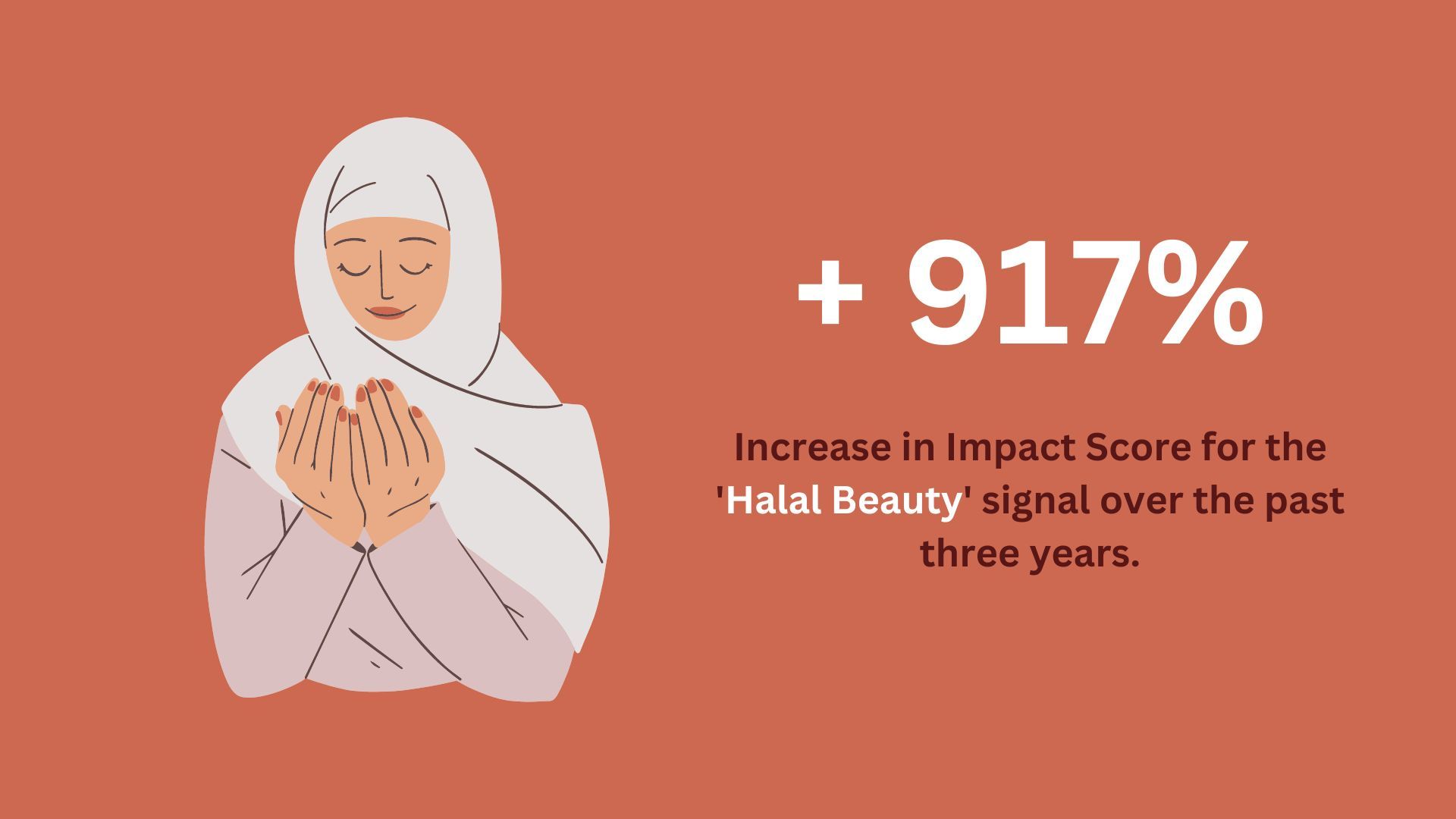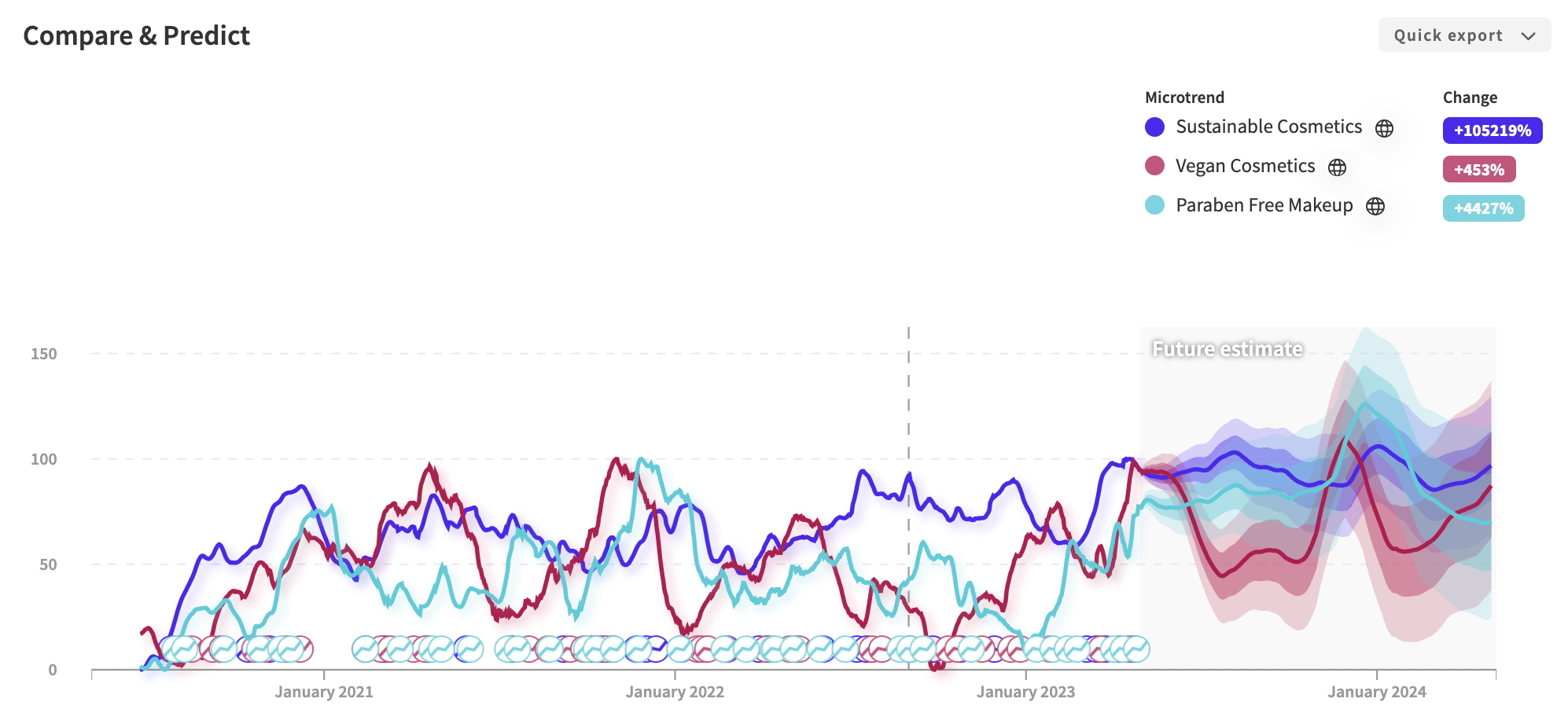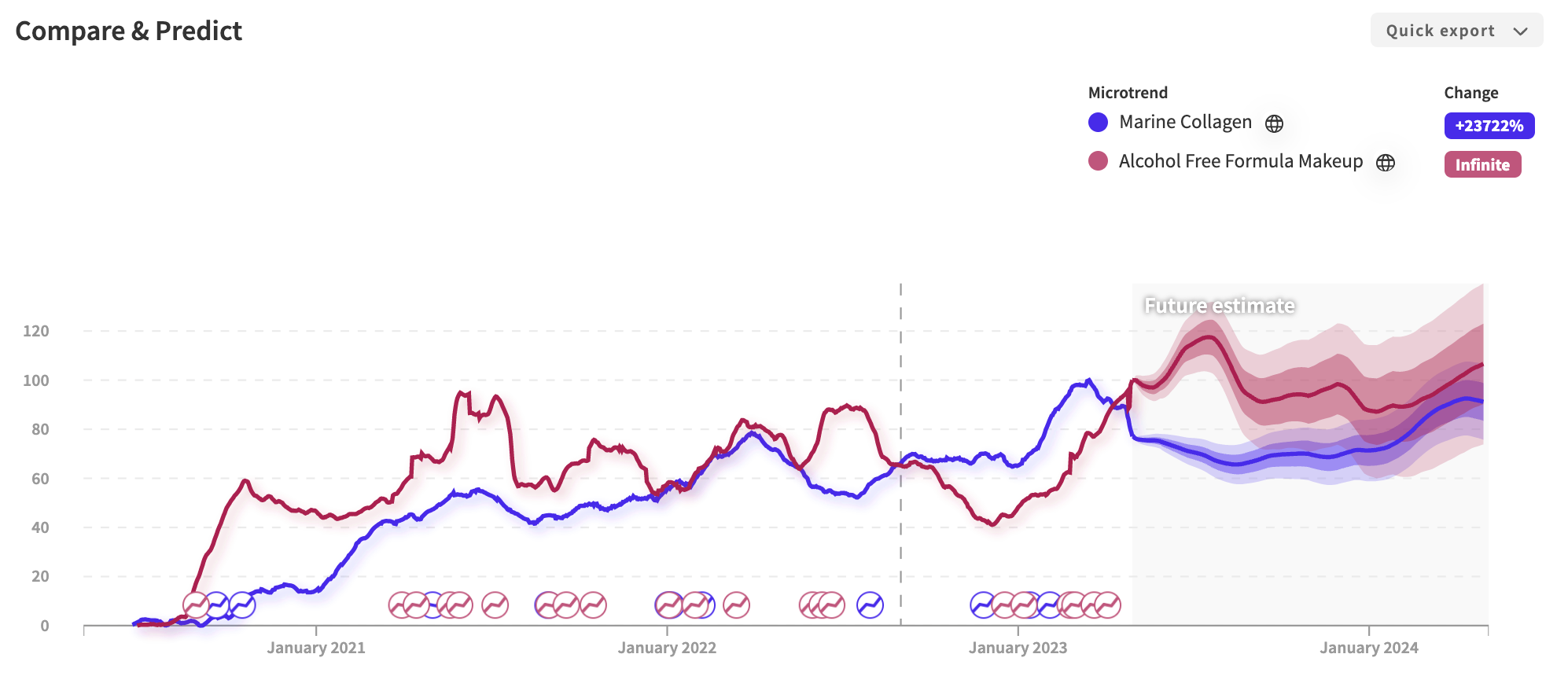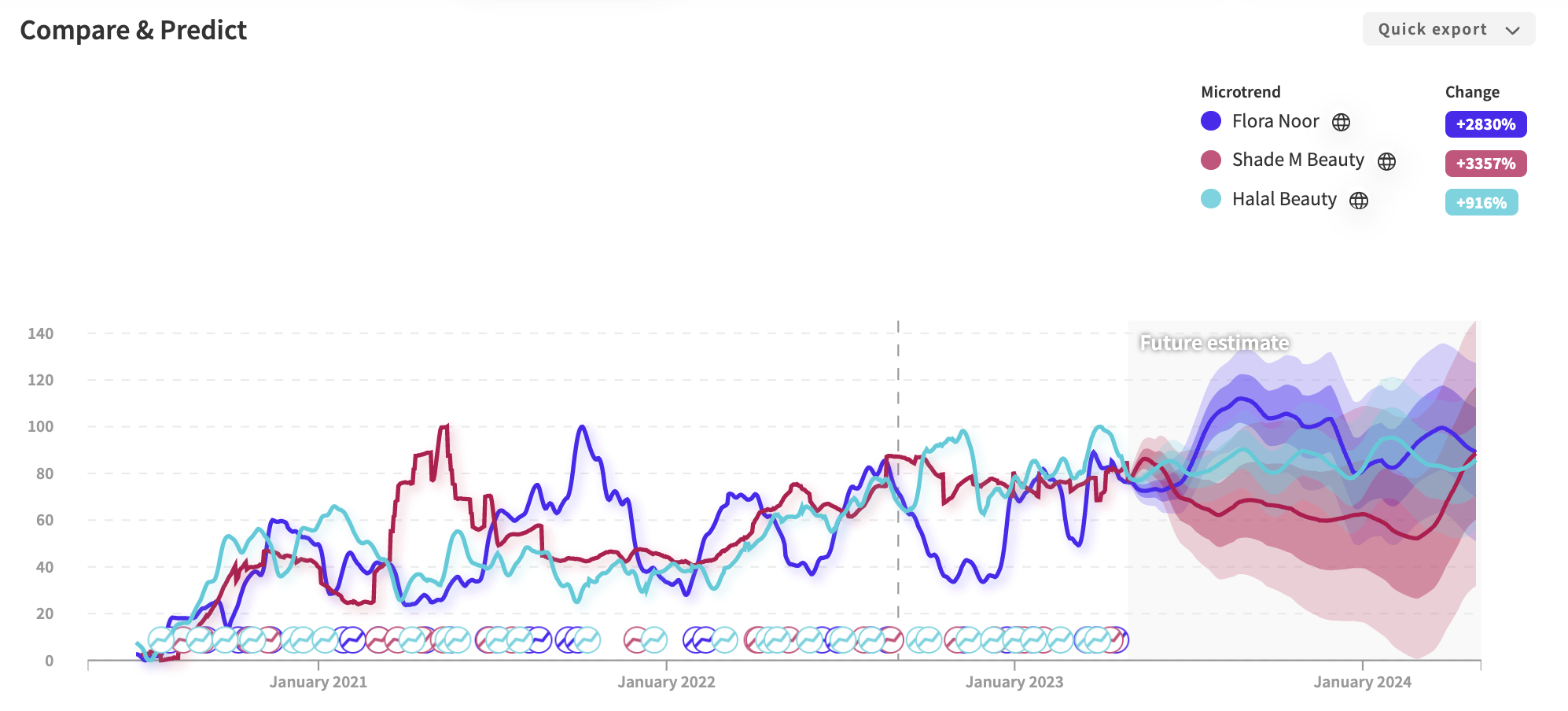Hello Forecasters,
Welcome back to the Inflection Point. The newsletter tracking 100 million consumer signals to predict cultural shifts relevant to you.
This week we’re covering ‘Halal Beauty’
TLDR;
- In an era of ethical consumerism, ‘Halal Beauty’ is becoming the gold standard.
- Informed consumers are demanding cleaner products– goodbye parabens!
- Brands swapping out traditional cosmetics ingredients for halal-friendly alternatives stand to gain.

So what is ‘Halal Beauty’?
Let's make one thing clear. ‘Halal Beauty’ is not a trend. It’s a highly intentional lifestyle. You may be more familiar with halal food, but the beauty rules are just the same.
Halal-certified refers to evaluating a product's ingredients and manufacturing processes permissible under Islamic law.
That means Halal Beauty products can’t have ingredients derived from:
- Pigs
- Blood
- Insects
- Alcohol
- Reptiles
- Predatory Animals
- Human Body Parts
This may sound like a basic desire, but you’d be surprised what ends up in your daily beauty products.
- Alcohol can be commonly found in hairsprays, perfumes, liquid foundations, and concealers.
- Pig-derived collagen or gelatin can be found in mascaras, eyeliners, and brow products.
- Carmine, a red pigment derived from crushed beetles, is used in certain blushes, lipsticks, and eyeshadows.
- Tallow, an animal fat, is often used in concealers to create a creamy smooth texture.
We could go on, but you get the point.
You can think of halal as similar to cruelty-free or vegan cosmetics. That’s because preserving life is one of the primary objectives of Islamic law.
And while many consumers aren't purchasing their makeup based on religious beliefs. Increasingly they are looking for brands to align with their moral values. The below comparison shows the increasing interest in sustainable and harmless cosmetics.

Halal goes beyond clean and cruelty-free, serving customers who prioritize specific standards for products contacting their bodies.
It also outlaws harmful ingredients such as:
- Sulfates (including SLS + SLES)
- Formaldehyde
- Phthalates
- Parabens
- GMOs
And although animal testing isn't permitted, halal isn’t strictly vegan either. For example, it allows the use of beeswax and honey.
It’s important to note that just because a product complies with halal guidelines doesn't make it officially halal. Every ingredient must be sourced to ensure it's created according to Sharia Law. In addition to inspecting raw materials and sourcing, halal certification requires the entire production chain to prohibit any contact with impure materials across the production cycle.
This is why halal is among the highest integrity certifications available for any product.
Why is ‘Halal Beauty’ becoming mainstream?
In a world inundated with choices, Halal can make it easier for consumers to decide. Yes, we want products tailored to our needs, but we also want brands to align with our values.
Beauty, like most rituals, is a personal choice informed by beliefs and desires. Thanks to social media, it's easy for customers to demand their wants. Clean ingredients and transparent supply chains are core to Halal beauty.
“Your skin is the biggest organ in your body. It absorbs everything, so you’re consuming products indirectly,” says Habib Ghanim—director of ISWA Halal Certification Department.
The informed consumer is much more aware of what they put into their bodies. So while halal beauty originated as an inclusive standard for Muslims, it’s gaining mass appeal due to its strict integrity. Clean beauty to the max!
Muslim consumers also make up over 23% of the global population (and growing). These 1.8 billion people comprise a significant percentage of the Halal Beauty market. The worldwide Halal Cosmetics market was valued at $29.13B in 2020 and is expected to reach $104.17B in 2027.
Who can benefit from the growing interest in 'Hala Beauty'?
Brands that offer ‘clean’ alternative ingredients.
Vegan collagen is among the top trending ingredients that are halal-friendly and is forecast to trend within the following year.

For some, halal has long been a consideration. In 2012 Shiseido obtained halal certification for 28 skincare products for its Malaysian market.
And while there are many certifications, Halal covers a lot of bases and may be the highest integrity certification a beauty brand can receive. It puts brands at an advantage, catering to Muslims and the vegan, sustainable beauty consumer market.
So why don’t more brands get certified?
Obtaining halal certification can take up to 2 years. Pricing varies and is dependent on the number of products assessed. Brands can also expect additional charges to use the certification logo on packaging and websites.
Where is the trend moving?
It’s essential to remember halal is not a trend or a marketing gimmick; it’s a lifestyle and strict belief system. Although we usually focus on trends in this newsletter, 'Halal Beauty' falls under our foresight category – as it is a market on the rise and set to explode over the following year.
Shade M and Flora Noor are two brands leading the ‘Halal Beauty’ industry.

Key takeaways?
Consumers are demanding more from the brands they spend with.
Informed consumerism is driving the ethical beauty market. Halal certification is the gold standard. Brands swapping out traditional cosmetics with clean and ethical ones stand to gain.
That’s all we got for now.
Thanks for spending time with us on this week’s inflection point.
Found this interesting? Subscribe below or send us a note. We’d love to hear from you!